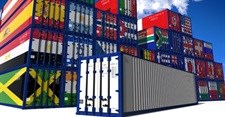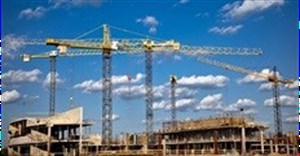#AfricaMonth
Trending





 Netflix reaches 40m users for ad supported planKarabo Ledwaba
Netflix reaches 40m users for ad supported planKarabo Ledwaba
Elections 2024
Electricity key to continent's growth
A major concern for the local economy is the effect these continued electricity price increases will have on the competitiveness of South Africa. Considering the already stringent labour legislation South African companies face and the uncertainty in the exchange rate, the increase could not come at a worse time.
Comparatively, the price of 1kWh of electricity in the US is $0.112c whereas the same unit would cost $0.171c in South Africa. This is further exacerbated by the fact that China sells renewable energy for a price of $0.16c per kWh. Not only is it cheaper, it's greener too. Considering the fact that renewable energy is considered more expensive to produce, is South Africa doing enough to combat the current power shortage.
Africa's lack of infrastructure stymies growth
The lack of infrastructure in Africa is also a concern. The entire continent has the same power generation capacity as Germany. The lack of investment in this area has resulted in insufficient production and poor maintenance of the current infrastructure. Improvement to this vital sector of the economy and further development will have far-reaching consequences for the growth of the continent. Recent investments in mining across Africa will count for nothing, if the power required to run these numerous operations is not available.
Whilst the overall picture appears bleak, there has been movement on the investment front. Apart from the power stations planned for South Africa, namely Kusile, Medupi and the Ingula Pumped Storage Scheme, there are approximately seven projects listed by the UN underway in Africa. While this is positive, it is unlikely to make a significant impact on a continent where only 5% of the urban population has access to electricity.
Going forward it is likely that South Africa's electricity woes will continue in the short to medium term. The two new power plants are expected to be completed in 2013/2014. This follows a general rule of thumb that it takes approximately eight years to build a coal-fired power plant.
Alternative energy vital
Alternative energy sources will need to be made a priority to meet future demand. Current trials are underway on solar power and there are talks of nuclear power becoming a viable option again, though the lead time to construct a nuclear power plant is much the same as coal.
Economic growth is likely to be stunted until the energy crisis is resolved. There is an opportunity for government to work with privately run energy producers to assist in the alleviation of energy demand, thereby supporting economic growth.
Electricity Consumption
According to Stats South Africa on the electricity generated and available for distribution in August 2011, the actual volume consumed grew by 0.4% (77 Gigawatt-hours) year-on-year in August 2011. Electricity consumption for the three months ended August 2011 rose marginally by 0.1% (46 Gigawatt-hours) compared with the three months ended August 2010. However, seasonally adjusted electricity consumption fell by 3.3% for the three months ended August 2011 compared with the three months ended May 2011.
Electricity production rose by 0.5% year-on-year in August 2011. The estimated electricity production for the three months ended August 2011 grew by 0.5% compared with the three months ended August 2010. However, seasonally adjusted electricity production fell by 3.1% in the three months ended August 2011 compared with the three months ended May 2011.










